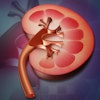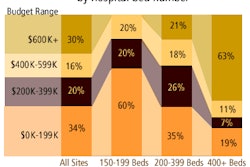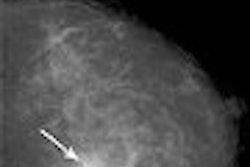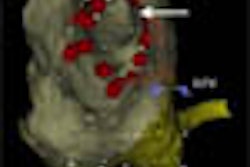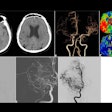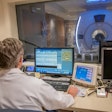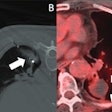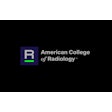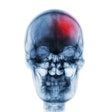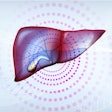The American College of Radiology has suspended one of its members for giving testimony that the association contends was "clinically inaccurate and scientifically incorrect" in a medical malpractice case. The action is the second suspension made by the Reston, VA, society since it began reviewing the issue of expert testimony by ACR members in 2003.
The ACR issued the one-year suspension to Dr. Gregory Shenk of Az-Tech Radiology in Casa Grande, AZ, after a hearing in Chicago in January. The ACR has also reported the suspension to the National Practitioner Data Bank, a national repository of physician credentials.
For his part, Shenk maintains that the ACR rendered the decision because it is biased against him due to his history as an expert witness for plaintiffs in malpractice cases. The college's disciplinary action is part of a nationwide effort by professional medical societies to crack down on expert witnesses who testify against their members, he believes. He maintains that his testimony in the case was clinically valid.
The case in question involves the treatment of a Texas woman who was diagnosed with a cerebral meningioma in 2001. She was referred to Lubbock Diagnostic Radiology, where interventional neuroradiologist Dr. Thomas Windisch performed a cerebral embolization procedure to devascularize the tumor prior to surgical removal. A hemorrhage developed following the procedure, however, and the woman subsequently suffered seizures and was rendered quadriplegic.
In a subsequent malpractice lawsuit filed against Windisch and the facility, Shenk testified in 2003 that in his opinion embolism was not appropriate for this type of tumor in that location, a parasagittal falcine meningioma, because the case was nonemergent, and the tumor was fed by the right and left anterior cerebral arteries with no feeders from the right or left external carotid artery. The type of procedure conducted by Windisch had never been performed in that location, Shenk believes, and he would have opted for surgery and Gamma Knife treatment.
The defendants in the lawsuit challenged Shenk's qualifications to testify in the case, however, and succeeded in having Shenk dismissed as a witness after a Texas appeals court agreed with their arguments. The court held that while Shenk has training and board certification in neuroradiology, and taught interventional neuroradiology in 1987-1988, he does not have recent experience in interventional neuroradiology, the type of procedure performed in the case at issue. Since 1988 he has served as medical director of several MRI centers, the court noted.
Shenk maintains that the Texas court's decision was based on a state law passed in 2003 that he believes was designed to stifle expert-witness testimony. The law requires expert witnesses to be practicing physicians in the same type of treatment as that delivered by the defendants, either at the time of the testimony or at the time of the alleged malpractice occurrence. Had the case been heard outside the court's jurisdiction, Shenk's testimony would have been admitted, he believes.
The family friend who had filed the case on behalf of the woman chose not to continue with the lawsuit after Shenk's testimony was thrown out.
ACR complaint
Windisch followed up on the legal victory with a complaint filed with the ACR in the spring of 2005 charging Shenk with violating the ACR code of ethics by "giving biased, clinically inaccurate, and scientifically incorrect expert medical testimony," according to Thomas Hoffman, associate general counsel and staff counsel to the ACR's Committee on Ethics.
"One factor that the committee addressed was that (Shenk) testified in a partisan manner and lacked experience," Hoffman said. "He hadn't practiced actively in interventional neuroradiology in 14 years when he testified in 2003. However, he addressed issues in his testimony that are open to discussion by experts."
The committee rendered its verdict after hearing testimony at the Chicago hearing, including a response from Shenk, and after sending transcripts to independent radiologists who provided third-party clinical assessments. "The committee gave Dr. Shenk full due process," Hoffman said.
Shenk doesn't see it that way, though. He believes that at least one of the neuroradiologists who reviewed the case as part of the ACR proceeding agreed with his interpretation of the case.
"The ACR wanted me out as an expert witness. That's what their whole goal was," Shenk said. "I had been an expert witness for plaintiffs throughout the U.S. They were looking for any excuse they could to eliminate me as an expert."
Shenk said that professional medical societies throughout the U.S. are trying to eliminate expert witnesses if they don't practice in the specific area addressed by the malpractice case at issue. In the Lubbock case, he said that the plaintiff's attorneys called on him to testify because they were unable to find an interventional neuroradiologist willing to testify against a fellow specialist.
"This is not just happening to me, this is happening across the U.S.," Shenk said. "What it does is it eliminates a large percentage of the expert witnesses for the plaintiff. That is a national phenomenon."
Windisch, however, believes the threat comes from an expert-witness system in which doctors can profit by providing testimony against their fellow physicians. He said that in this particular case, the procedure involved a high level of risk but was necessary because of feeders to the tumor that the surgeon wouldn't have been able to get at. Windisch also refutes Shenk's contention that the procedure was unprecedented -- he has conducted 20 similar procedures and there are some 250 cases referenced in the English-language medical literature, he said.
"One of the reasons I got passionate about this case is that there has to be some people willing to do high-risk procedures," Windisch said. "If you have someone sitting in a La-Z-Boy taking potshots at those people, it hinders patient care."
Shenk's suspension is the second since the ACR in 2003 began reviewing cases in which its members provided expert-witness testimony against radiologists. In 2004 the college suspended a California radiologist for 80 days for testimony against an Alaska radiologist in 2001. The ACR has also implemented two censures and one expulsion in that time.
By Brian Casey
AuntMinnie.com staff writer
March 30, 2006
Related Reading
ACR suspends prominent radiologist for malpractice testimony, October 20, 2004
Medical malpractice legislation: An all-around non-starter? July 8, 2004
AMA delegates chastise doctor for suggesting care refusal to plaintiff attorneys, June 14, 2004
ACR weighs more allegations over expert testimony, April 27, 2004
'Threatening' article to mammo expert throws malpractice case into disarray, December 16, 2003
Copyright © 2006 AuntMinnie.com



